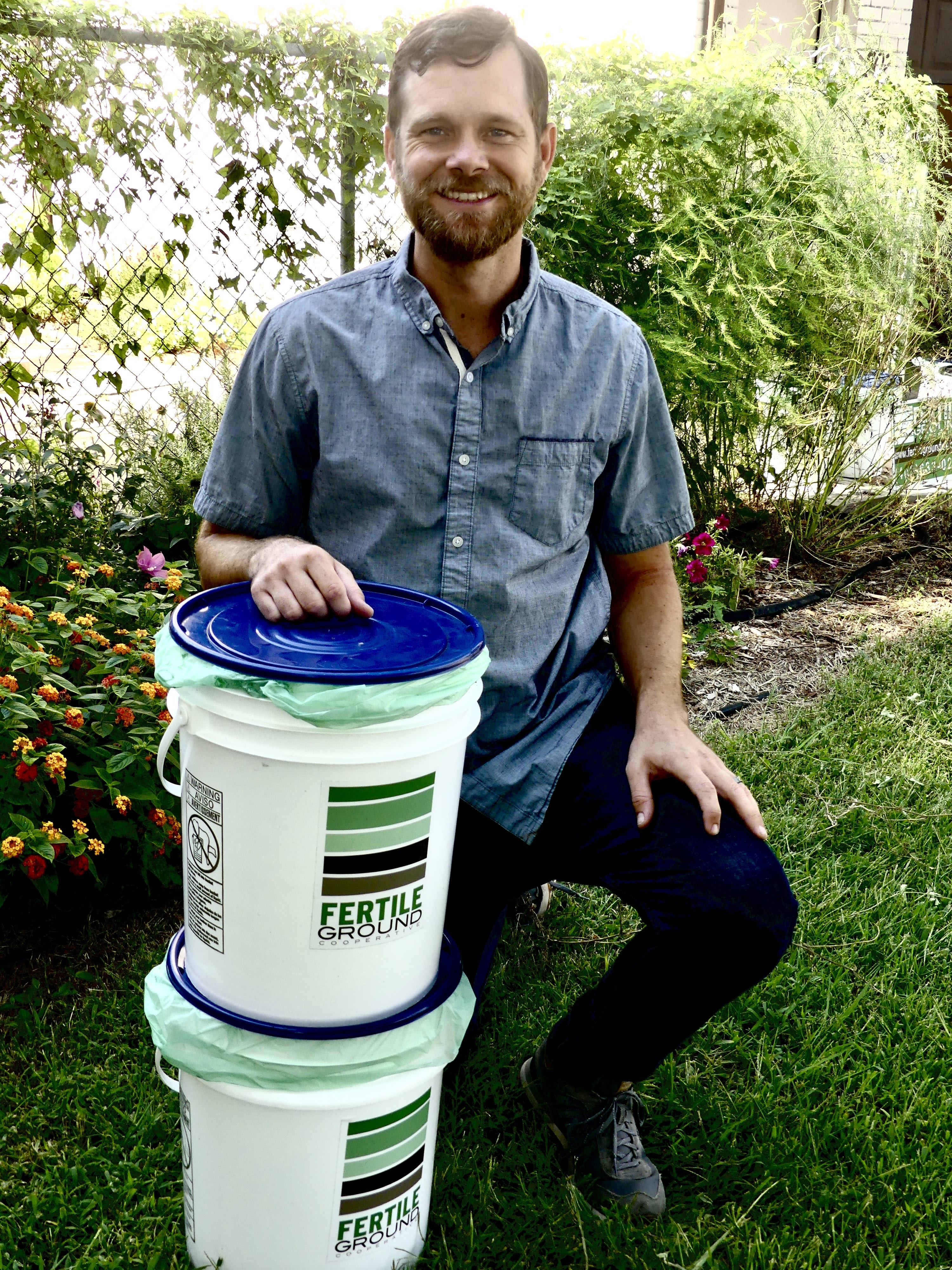Meet our Team: Terry Craghead, co-founder  As with all of the people involved in CommonWealth Urban Farms, co-founder Terry Craghead’s path to the farm is fascinating. Born in Tulsa, educated in Union Public Schools and then Oklahoma Christian College, he married the day after college graduation in 2006. With a major in missions in which he focused on cross-cultural studies, Greek and Hebrew languages, he and his spouse Darci took a year after graduation working retail jobs and preparing for a missionary project in Australia. As with all of the people involved in CommonWealth Urban Farms, co-founder Terry Craghead’s path to the farm is fascinating. Born in Tulsa, educated in Union Public Schools and then Oklahoma Christian College, he married the day after college graduation in 2006. With a major in missions in which he focused on cross-cultural studies, Greek and Hebrew languages, he and his spouse Darci took a year after graduation working retail jobs and preparing for a missionary project in Australia.
In a suburb of Sydney, they volunteered in the community: in public schools with a breakfast club, reading program and after school projects. They also worked in a mental health day center and taught classes in a small church. After 11 months, two things began to happen. Terry began to question and challenge the missionary theology he’d been taught; at the same time, he began to get sick a lot, which gave him more time to think about what he was doing. Ultimately, he became so sick he went to an emergency room where an intern specializing in immunology diagnosed a deficiency in his immune system. Back home in Oklahoma, he began treatment for his condition and worked in mental health as a case manager for children, adults and families. He began to see that the government programs to help the poor were not helping—to put it simply. Searching for a deeper way to address social problems, he began an online master’s program in urban studies with a vague goal to either start a non-profit or work for one that would fix the holes in the system. At that time he began to learn about cooperative economics, and member cooperatives including the Oklahoma Food Coop and its founder Bob Waldrop. “This seemed to be the missing piece,” says Terry. “Capitalism is designed to provide the outcomes we have in our society and the not-for-profit reliance on the wealthy enforces and looks up to the wealthy for donations that pale in comparison to their wealth. Our current system is not a way to help people plug in the gaps. Cooperative economics, worker-owned cooperatives in particular, seemed the third way for people to ban together and provide our needs.” It was during this time, in 2010, that Terry was a part-time stay-at-home parent with his young daughter. He spent some of that time watching documentaries about farming. Those farmers inspired his idea of starting an urban farm in the Paseo neighborhood. He had been gardening in his backyard for a year, but realized he didn’t know what he was doing. When Lia invited him to a public meeting about forming an urban farm, Terry accepted. Allen was composting in the Closer To Earth program with youth and Terry began volunteering. The urban farm meetings continued for a year. Lia Woods, Allen Parleir, Sara and David Braden and Terry were co-founders. Terry left his online master’s program in urban studies, as well as the horticulture program he was taking at OSU-OKC. “I realized what I was learning working at CommonWealth and Closer to Earth was the education I was looking for.” His work with Allen and David in the Closer to Earth composting operation led to an expansion of the composting effort: Fertile Ground, a worker-owned cooperative business which provides sustainability-related services. Its 10 current owners manage bike routes to individual homes where they collect a week’s worth of kitchen scraps and leave an empty bucket for next week’s scraps. They also have drop-off sites around the city, including one at CommonWealth. As the demand is increasing and the workers are more available, the bike route is expanding. Fertile Ground also provides compost pickup and recycling for 90 small businesses. (This they do in a truck rather than on bicycles.) They provide other services as well, including zero-waste events, and they deliver the food waste to community compost sites. “The idea for Fertile Ground to provide worker jobs and promote sustainability, came directly out of the work of CommonWealth, who we consulted with as we began,” says Terry. Likewise, Terry is still a significant part of CommonWealth in other ways, on its operational team and the larger community that meets monthly. CommonWealth and Fertile Ground, sister projects, are part of the building of a local food economy, says Terry. Fertile Ground’s part is collecting and delivering food waste to local soils to grow local food. Providing jobs and environmentally-beneficial services: “Solidarity and Sustainability.” And you thought CommonWealth only grew veggies and flowers! For Terry, it also helped grow a vision into a reality. |